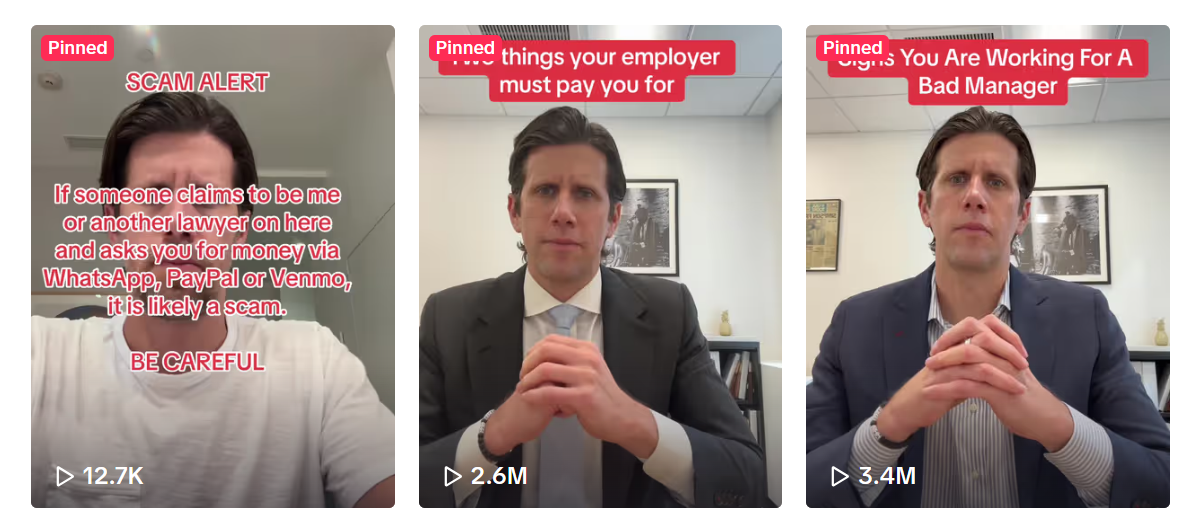Lawyers oppose Trump's EO
Plus: TikTok as a lawyer referral system?

Getting a large group of lawyers to go along with anything is a lot like herding cats, which makes the amicus brief filed by over 500 law firms in the Perkins Coie EO lawsuit remarkable for more than just its subject matter. We’ve got a link to it, and the briefs filed by various associations and law profs, too.
Beyond that, this issue of Raise the Bar has the scoop on how to get noticed by local media (and why you want to), tips for buying swag your potential clients will actually like and info on the judge who threatened everyone at the ABA TechShow to “think carefully before you cross me.”
And you won’t want to miss our Q&A with an attorney who has turned TikTok into a solid referral source (without learning any dance moves).

You, too, can look like Lionel Hutz. If you are willing to ignore a little bit of copyright law and use ChatGPT’s new image creator to Simpsons-ify your headshot, that is.
It’s National Library Week! So we’re linking this helpful list of state law libraries the Minnesota State Law Library put together.
En dash lovers unite. Loved the video about “Fonts hanging out”? You’re going to want to see the follow-up starring our favorite punctuation marks.
“Don’t think out loud.” Pretty solid advice from the judge following this exchange highlighted by @hashemilaw on Instagram.
You’re unique, just like everyone else. AI finds fingerprints are more similar than previously thought, raising questions about using them as evidence.


Turning TikTok into a referral source
President Trump gave TikTok an additional 75 days to find a buyer for its U.S. operations, and Attorney Doug Lipsky plans on making the most of that time. His brief, no-nonsense employment law videos have become a key source of referrals for his firm, Lipsky Lowe LLP. Raise the Bar caught up with Lipsky for a chat about the polarizing social media platform. -Emily Kelchen
Your firm has thousands of followers and millions of views on TikTok. Are you concerned the government is going to shut it down and you will lose what you have built?
While I believe a deal will ultimately save the company, I have taken the necessary steps to prepare for it shutting down, including downloading and saving my videos.
What appeals to you about TikTok?
It allows me to connect with people who might not otherwise have access to attorneys, and through that, I am able to advise them of their rights and develop client leads. Also, through the data TikTok provides, I can quickly identify what issues matter the most to them.
How are you measuring the impact of your effort?
I best measure my impact through views, engagement and how many leads we are generating from it. I know a video is resonating when viewers start asking for help.
Some of your most popular videos are about wage theft. Why do you think that is such a popular topic?
It’s the biggest crime in this country. Many employers depend on uniformed employees and they weaponize that information gap to save money. So, the videos I make may be the first time someone has ever realized what is happening to them is not just wrong, it’s illegal.
What’s the next step after someone sees one of your videos about wage theft or another employment law hot topic?
It’s usually another video or a click over to our firm’s website. I want to make a connection and encourage that next step with each interaction because when you are dealing with people who have been wronged, it sometimes takes them a long time to trust you.
That’s more important than going viral for sure.
It is. We can change lives with our cases. I have had clients bring their families to the office to pick up their check because they are so proud of it, and at the end of the day, that’s what keeps me motivated.
Above: Doug Lipsky's viral content on his TikTok page. (Courtesy)

More than 500 firms sign amicus brief in support of Perkins Coie
Small -and medium-sized firms are speaking out against the Trump administration’s Executive Orders targeting various BigLaw firms. Hundreds signed on to an amicus brief in the case challenging the Perkins Coie EO. While few firms are going into great detail on why they did (or didn’t) sign the brief, which was drafted by Donald B. Verrilli Jr. of Munger, Tolles, & Olson and Nathan Eimer of Eimer Stahl LLP, it speaks for itself:
"Like every lawyer, the members of the amicus law firms have sworn an oath to uphold the Constitution and to discharge the obligations of the profession to the best of our ability. That oath obligates all of us, no matter our political views, to be faithful custodians of our Nation’s commitment to the rule of law—a commitment that has made it possible for this Nation’s corporations to lead the world in innovation and productivity; for our scientists, scholars and creative artists to contribute so much to human progress; and for all of us to know that we can turn to the courts to vindicate our fundamental civil rights. We therefore feel a special responsibility to stand up now to the unprecedented threat posed by the Executive Order at issue in this case and the others like it."
Why this matters: It’s rare for law firms to 1. sign on to amicus briefs period and 2. do so en masse. This is something to watch. Briefs were also filed by 360+ law professors, 340+ former judges, a coalition of think tanks, and a bunch of former general counsels. (The Hill)

Judge threatens lawyers via deepfake
Last week’s ABA Techshow put all the latest gadgets and AI on display, but it was a judge who ended up stealing the spotlight. During a breakout session on AI evidence, Judge Scott Schlegel of the Louisiana Fifth Circuit Court of Appeal sounded the alarm on deepfakes. He warns that the ability to quickly and easily create false evidence is here. Demonstrating with a fake recording of himself threatening someone to “think carefully before you cross me,” (he’s got similar ones on his website if you want to take a look), Schlegel stressed that anyone with access to your voice or image could create damaging content.
Why this matters: It’s getting easier to fake evidence every day and we are seeing more and more of it (like these fake cease-and-desist letters one AI “artist” is using to try and protect their “art”). This raises serious concerns for legal claims involving harassment, domestic violence or even wrongful termination. With few tools available to verify authenticity, Judge Schlegel urges lawyers to ask detailed questions about the source of digital evidence and to stay vigilant. (ABA Journal)

Making some front-page news
Have you ever noticed that reporters seem to talk to the same lawyers over and over? If you want to be that attorney, this podcast is for you. Tom Ciesielka of TC Public Relations goes over what members of the media are looking for, and how to get their attention. Plus, he covers some of the ethical considerations of talking to the public about your work. Skip to the six-minute mark and speed it up if you want to jump to the meat of the conversation and get through it fast.
Why this matters: When you’re featured in news stories, quoted as an expert or even just mentioned in local coverage, it signals to the community that you’re a trusted authority in your field. That kind of third-party validation carries more weight than paid advertising and builds name recognition and trust at the same time. (Be That Lawyer Podcast)

- Just Security continues to update their Trump admin case tracker
- Inmate held in dog cage can sue
- Judges claim lawyers are ruder post-pandemic
- Colorado court to decide if parents should be Mirandized during child welfare checks
- Big personnel changes at the DOJ

What's in a swag bag matters
‘Tis the season for conferences and community events. If you are wondering what sort of swag will draw your potential clients’ eyes, this article from BizBash has a few pointers. First off, you need to figure out what marketing goal you are trying to accomplish. Whether you are focused on brand awareness, lead generation or simply thanking people for showing up to an event, your giveaways should align with that objective. From there, you can go through the article’s list of do’s and don’ts to figure out what branded items might work best for you.
Why this matters: Being thoughtful about what items you are passing out is more important than the number of things you hand out. After all, do you want your clients to associate you with their favorite pen, or the useless desk tchotchke they just threw away? (BizBash)

Thank you for reading Raise The Bar.
Every Thursday, you'll hear from our team about the most pressing issues facing legal practices today. We'll also try to include some quick-hit reads that touch on interesting cases and precedents being set worldwide.
Have anything you'd like us to cover? Send an email raisethebar@mynewsletter.co
Raise the Bar is curated and written by Emily Kelchen and edited by Bianca Prieto.

